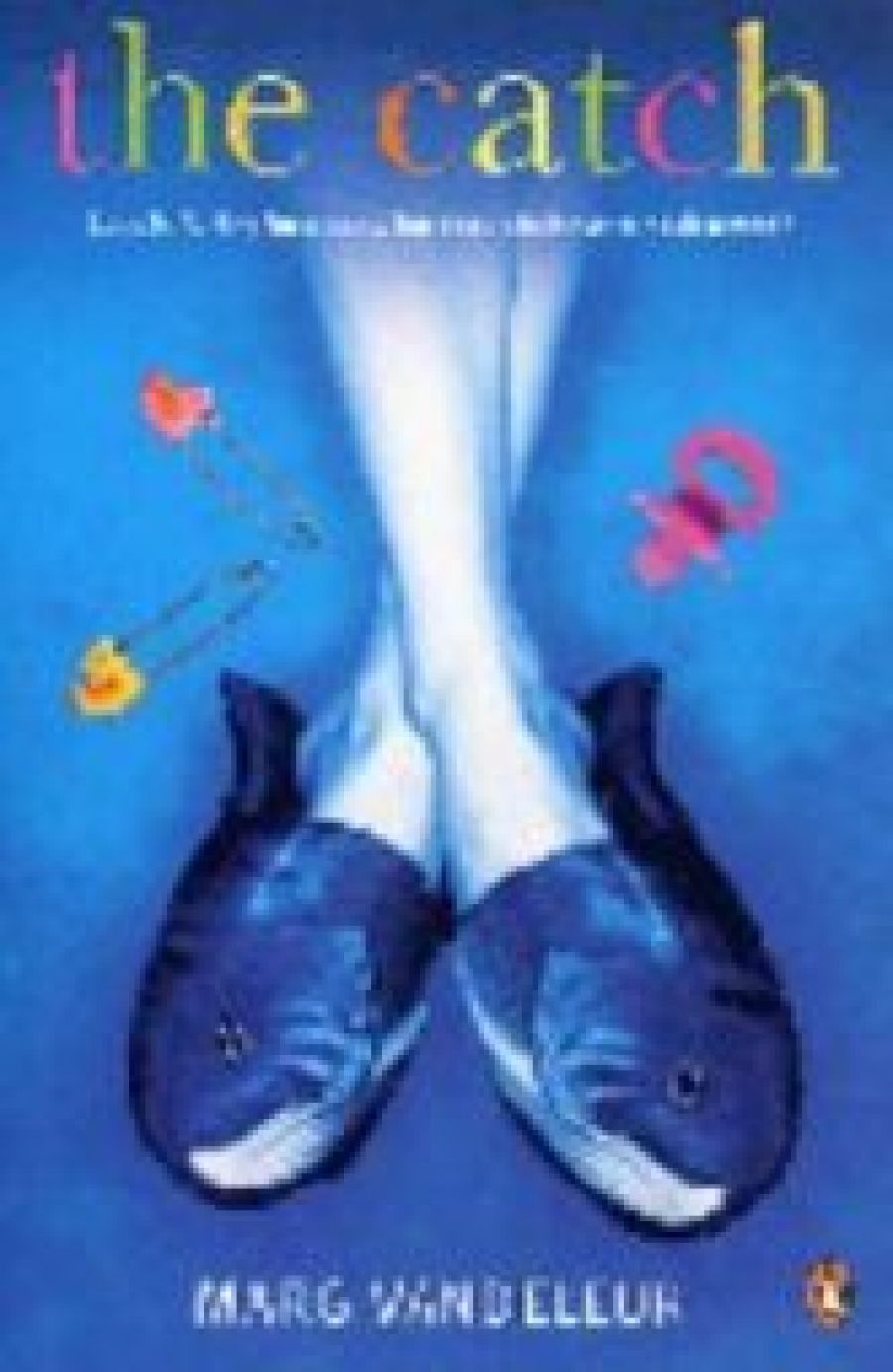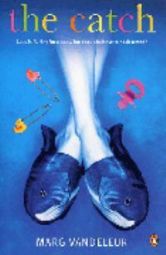
- Free Article: No
- Contents Category: Fiction
- Review Article: Yes
- Article Title: The usual suspects
- Online Only: No
- Custom Highlight Text:
The beauty of ‘chick lit’ is the discussion of sometimes quite painful, but always familiar scenarios surrounding love, life and happiness, in an open and self-deprecating way. Apparently, it doesn’t pay to take yourself too seriously when it comes to matters of the heart, and rightly so – why weep when you can have a good laugh? In The Catch, Marg Vandeleur’s first novel, the search for happiness is complicated by the plight of the woman whose sudden desire for a child is thwarted by a clutch of eggs past their prime and nary a bloke in sight. Social commentators, researchers, religious leaders and feminists have all put their oar in over the last year or so on this topic. Now it’s time for ‘chick lit’ to have its say.
- Book 1 Title: The Catch
- Book 1 Biblio: Penguin, $22.95pb, 370pp, 0 14 300003 9
- Book 1 Cover Small (400 x 600):

- Book 1 Cover (800 x 1200):

The issue of sliding fertility looms large in this book and reflects the different ways a girl can find herself anxiously looking for a man. Careers dominate some women’s fertile years. In other cases, long-term relationships end, forcing them to trawl the singles scene in the hope of finding someone to impregnate them in time. For other women, the maternal instinct is belated.
As with most chick lit, where the creative professions seem to be over-represented, The Catch trots out the usual suspects. It seems that only people who work in the entertainment industry, publishing or design fields get a guernsey in these books. Minor roles are played out by the long-suffering personal assistant and by the friend/nemesis who seems to have it all. Typically, the gay and lesbian communities are represented, but there are no real surprises in the cast list, and few in the actual structure and storytelling.
Letty Summers hankers for a child. She is unattached, and the singles scene hasn’t offered up Prince Charming, no matter how many cocktail parties she attends. Panicky and fed up with the traditional route, Letty canvasses other alternatives to solve her dilemma. With help from her friend Jules, a writer of lesbian romance novels, Letty goes in search of the perfect sperm donor. Add to this the dissection of past relationships and the deep, sometimes festering, wounds they leave behind, the nature of friendships, the idea of the perfect partner and the longing for a child, and you’ve got a story that most single, thirty-something women should find familiar. It is with some surprise, then, that I found myself strangely put off by this group of people and unable to empathise with Letty’s need to procreate.
It is often difficult to pinpoint why an otherwise well-written novel leaves you unsatisfied. Sometimes the lack of engagement is indefinable or is simply a case of pedestrian writing. Here, it came down to the fact that I found myself unable to connect sufficiently with the characters. For example, I feel I know Letty’s menstrual cycle better than I know her or what makes her tick, which is a worry given that she’s our main gal. In many ways, the novel feels as though the characters are only there to mouth the words of the story, giving the reader little opportunity to engage with them in any meaningful way.
This is not as hefty a tome as your average Marian Keyes (best-selling author of titles such as The Other Side of the Story, 2004), but a few thousand more words would have enabled the author to flesh out her cast and to provide readers with a more solid foundation on which to begin to understand these people and why their relationships seem so fragile, even dishonest. More importantly, such a fleshing-out would have given the reader a tangible sense of Letty’s need for a child and of her fear that it might not happen. While the reader is left in no doubt that this is exactly what our protagonist feels, the scent of fear that hovers around women who are going through this kind of dilemma, and the resulting sense of great sadness wasn’t present. Without it, Letty felt superficial and self-indulgent. Instead, it was left to some of the minor characters, such as Erma Little from Letty’s Weekly Weighers group, to offer the deepest insights into the human condition.
Of course, few first novels are perfect; nor should we expect them to be. Authors generally grow with each manuscript, and should be given the opportunity to prove themselves. Vandeleur seems to have the right voice for this genre; she just needs to delve a little deeper.


Comments powered by CComment